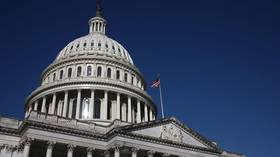‘Foreign nation with significant means’ in Belgium spying probe

Authorities in Belgium are investigating a 'foreign state' suspected of spying on the country’s main telecom company.
National phone operator Belgacom filed a complaint in July, saying several of its servers and computers were hacked, Belgian Federal prosecutors announced on Monday.
"The inquiry has shown that the hacking was only possible by
an intruder with significant financial and logistic means,"
they said. "This fact, combined with the technical complexity
of the hacking and the scale on which it occurred, points towards
international state-sponsored cyber espionage."
The hackers used malicious software and advanced encryption techniques to gather strategic information rather than sabotage Belgacom's data or cause direct economic damage, the prosecutors said.
They declined to say which foreign state they suspected, but Belgian media were quick to point fingers at America’s NSA.
Documents leaked by a former contractor of the spy agency have shown massive electronic surveillance program by the NSA. The program was mostly done with compliance of telecommunication giants, many of them based in the US or its allies.
The agency also used hacking techniques to gather information, targeting computers in China, Brazil and apparently other nations, the leaks showed.
The Belgian daily De Standaard said the NSA had been monitoring international telephone traffic through Belgacom for two years. It said the agency had been primarily interested in Belgacom's subsidiary BICS, a wholesale provider of international phone lines and the biggest voice carrier in Africa and the Middle East.
James Clapper, the US Director of National Intelligence, admitted last week that the agency did collect information about economic and financial matters. He claimed it was used to combat terrorist financing and predict problems that could lead to financial crises or disrupt financial markets.
"What we do not do," Clapper said in a statement, "is use our foreign intelligence capabilities to steal the trade secrets of foreign companies on behalf of – or give intelligence we collect to – US companies to enhance their international competitiveness or increase their bottom line."
He didn’t explain how spying on the Brazilian state oil firm
Petroleo Brasileiro, which was reported last week with reference
to Snowden’s leaks, helped curbing terrorism.













